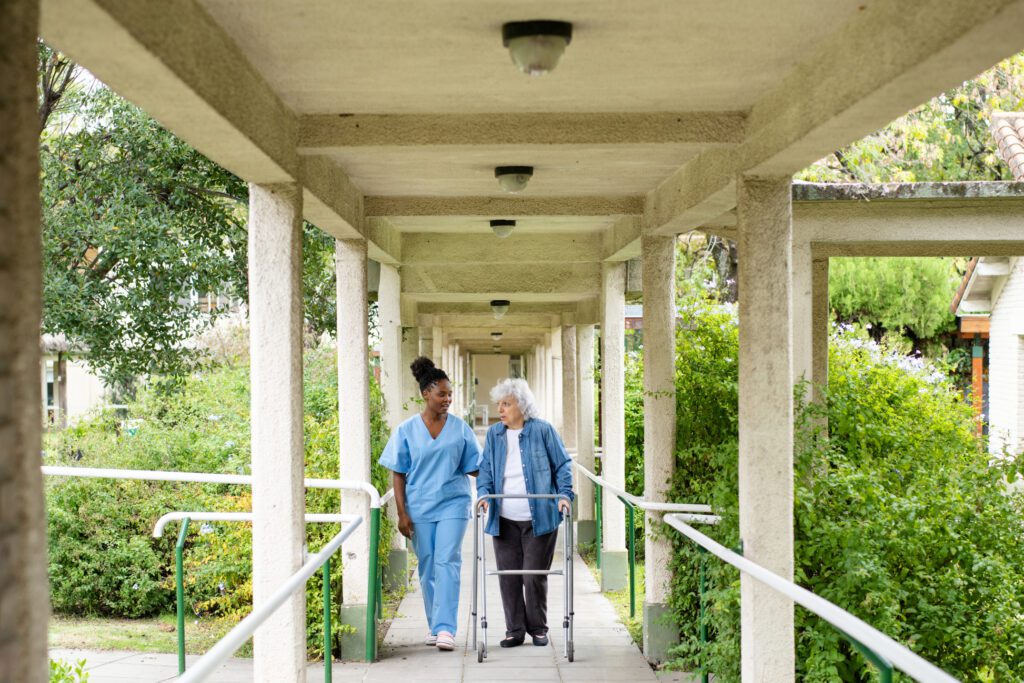From Assisted Living to Nursing Homes, Finding the Right Fit Is Key
by MAGGIE THARP
At some time or another, many seniors will reach a point where living on their own isn’t the best choice for their health or happiness. But when seniors and families realize this, it’s not always easy to make the transition or even to decide which of the many care options — such as in-home care, assisted living facilities, nursing homes, or memory care — are best.

That’s where Ingrid Burch comes in. The Polk County professional guides seniors and their families through the process, making it less confusing and easier for them to ultimately find a living option that meets their individual needs and wishes.
“I am a one-stop shop for seniors and their families in the community,” says Burch, founder of Saving Grace Senior Consulting.
“I help guide them towards resources; I help them during the crisis intervention when mom and dad need to go somewhere and they need to go somewhere fast.”
Burch, who has considerable experience in the realm of assisted living as well as nine years in hospice care, started her business after seeing the difficulty that many families had in navigating senior care options. She says she mostly helps to match seniors with the right assisted living facility and can also help provide resources and information if they need additional care.
Assisted Living Facilities vs Nursing Homes
While terms like assisted living and nursing home are often used interchangeably, Burch says it’s important to know the difference.
“When you hear assisted living, it’s essentially an apartment,” she says. “Nursing homes, on the other hand, offer skilled nursing services.”
Picking the right option, she explains, depends primarily on the level of assistance that the senior needs. If a person is still relatively independent but would benefit from fewer responsibilities and the social benefits of being part of a tight-knit community, assisted living might be a good option. Most assisted living communities also have a dedicated physician or nurse practitioner who makes rounds at the community and can keep tabs on resident health.
“In an emergency, if you’re seeing that physician in that community, you can get seen a lot quicker because you don’t have to make that appointment,” Burch says.
However, there are some cases where nursing homes and memory care facilities are a better choice when a person has additional physical and mental needs. For other individuals, staying in their home with some assistance can be the right option. Some private companies will offer help with things like housework, meals, and driving to appointments and errands, and for more advanced medical needs, home health can also be an option.
While modern senior facilities offer the chance to be part of a supportive community, participate in events, and often experience a resort-like environment, the move from independent living to assisted living and other care options can be difficult for some people. According to Burch, many people’s misgivings are reversed once they see what a positive environment these facilities can provide for seniors and that moving into one does not mean a total loss of independence.
“Most of [the assisted living facilities] are month-to-month leases, so you might move in and absolutely love it or you might hate it, but you’re never tied to it. And a lot of the seniors tell me once they’re in, ‘I wish I had done this sooner.’ Because there’s so much interaction and they build friendships and they have activities. That’s going to keep them thriving and they’re no longer having to clean and do their daily duties at home. They’re getting to enjoy the best parts of their life by just letting someone else do it,” Burch shares.
In many cases, Burch says that families start discussing the move to additional care after a crisis event, but she recommends starting that conversation earlier before it becomes urgent. That way seniors and families can take their time finding a care option that is truly the right fit.
